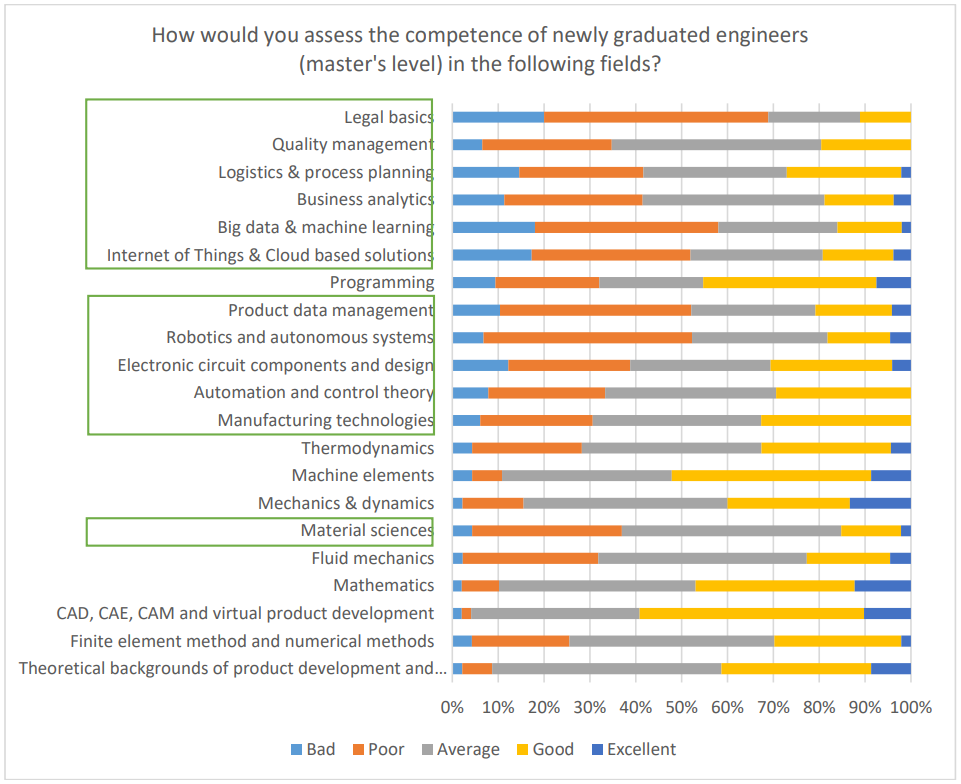
INDUSTRIAL NEEDS FOR MODERN ENGINEERING KNOWLEDGE IN CENTRAL EUROPEAN REGION – SURVEY RESULTS
N. VUKAŠINOVIĆ, M. ŠTORGA, S. ŠKEC, D. GERHARD, R. ŽAVBI
Source: RST Journal link
The Figure illustrates the skills and competences of newly graduated engineers according to industrial perception.
“The first set of questions asked participants of the survey about their opinion on the quality of the competences of newly graduated engineers in different traditional and emerging engineering skills, as well in some basic transverse skills, e.g. legal basics and business analytics. The selection of subjects mentioned in this survey was based on subjects (and their equivalents) currently being taught at all three universities, subjects that are included in competitive joint master courses around the world and enriched with some topics that are emerging in the field of development of smart and web-based products. As expected, the traditional knowledge was well represented, especially the knowledge of machine elements and various CAD technologies. Both subjects are usually taught at the bachelor’s level, so making a new engineering curriculum would not have a negative effect on the results. There are also some traditional engineering subjects, which should be reorganized or changed as Working experience 0 – 2 years 3 – 5 years 6 – 10 years 11 – 15 years 16 – 25 years 26 – 35 years more than 36 years 151 they do not perform well: material science in particular. This subject usually provides very fundamental knowledge about materials, with a huge emphasis on steel, however the engineers who are dealing with product development need deeper knowledge on the principles of proper material selection and availability and properties of different construction materials. There was a significant lack of transitive knowledge; therefore, we emphasize improvements in that field – especially by implementing subjects about entrepreneurship, innovation, legal basics, management and business. The third field of emphasis is new and multidisciplinary knowledge: both of which are only seldom taught at traditional mechanical engineering master courses. This knowledge should cover at least: big data, machine learning, Internet of Things, and cloud base solutions, robotics, electronics, product data management and automation.”
